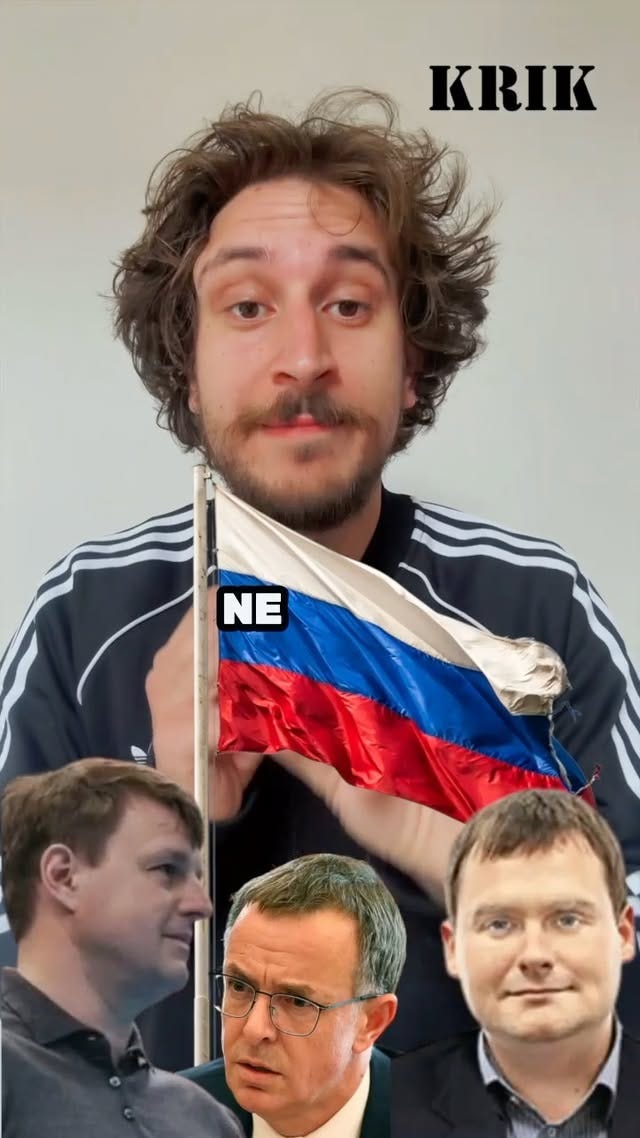Passports, please
Balkan gangsters roll with stolen identities. Not all Bulgarians love the euro, and Pristina is drowning in trash. But also: a region of unmistakable talents and forbidden milk.
Good morning everyone,
This is Balkan Brew, landing in your inbox right on time for your Friday morning coffee and news ritual.
Last week, we considered doing a special Sunday morning issue to prep for the Romanian elections. But to be honest we were both tired and overworked, so we skipped it. But hey, if you would’ve read it, let us know (really, just hit reply to this email or drop a comment on Substack) so we can plan better next time.
On the menu today: how Balkan gangsters can steal your identity and travel freely across the EU. Bulgarians vs. the euro, and Pristina drowning in trash. But also: a region of unmistakable talents, and some forbidden milk.
Let’s dig in.
Passports, please
Dreaming of being someone else has happened to everyone at least once. But when you’re an internationally wanted criminal, well there’s another sense of urgency that gets you to look for a new identity.
STOLEN NAME, REAL PAPER. A new CIN investigation, republished in English by OCCRP, reveals that at least 60 Balkan gangsters used stolen Bosnian identities to obtain real documents and travel undetected across Europe.
CALL ME BY HIS NAME. These weren’t fakes - the passports were real, issued by Bosnian authorities. The trick? Stealing identities from unsuspecting citizens, possibly using a leaked copy of Bosnia and Herzegovina’s central ID database.
Scary, we know.
WHO PAYS? While gangsters flew under the radar, some of these citizens got flagged at border crossings, accused of crimes they didn’t commit, and interrogated by police.
HOW TO: DIY BOSNIAN PASSPORT.
Step 1: Find a Bosnian citizen living abroad who’s never applied for an ID and without fingerprints in the system.
Step 2: Use their identity data to forge a new document, with the criminal’s face.
Step 3: Apply for citizenship, residency, and eventually a passport. Voilà, freedom of movement.
Why forge identities when you could obtain the real deal? A KRIK investigation last month showed how Russian spies, war profiteers, and oligarchs obtained Serbian citizenship through a little-known legal shortcut: special government decisions.
WHO NEEDS ID? While criminals scramble for clean papers, Romanians abroad - disillusioned by Nicușor Dan’s win over George Simion - have begun destroying their ID cards and passports in protest.
Don’t touch my lev
Last Sunday, many Bulgarians took to the streets in Sofia and other cities to protest against the country’s planned adoption of the euro.
WHEN? Bulgaria’s Ministry of Finance has said that the country is ready to join the eurozone in 2026.
NOT SO SURE. Many Bulgarians are feeling uneasy about the prospect. The main fear is that adopting the euro could worsen their economic situation - a concern that has been, at least in part, fuelled by pro-Russian actors.
MYTHS AND REALITY. The Bulgarian government, meanwhile, insists that euro adoption is a key strategic goal. They even launched a dedicated website with a full section debunking common myths.
LET’S HEAR IT FROM THE LEFT. A real debate on what euro adoption actually means for Bulgarians is missing. The step is being taken, as Jacobin notes, in an “atmosphere of peak anti-politics.”
Someone’s trash is another man’s debt
Kosovo’s capital, Pristina, is drowning in garbage. For the past two weeks, trash collection has been suspended in several neighbourhoods due to an ongoing standoff between the municipality and the waste collection company Pastrimi.
BACK… The municipality says Pastrimi lacks the capacity to keep up with waste collection.
AND FORTH. Pastrimi admits it’s struggling… but adds that things might improve if the municipality paid its €2.7 million debt (!!!) to the company.

WARNING. The National Institute of Public Health has issued a health alert, warning of a risk of infectious disease. Meanwhile, the police have been authorised to collect evidence of “environmental destruction.”
IN OTHER NEWS.
For the past two weeks, Serbia has banned milk imports from the Federation of Bosnia and Herzegovina (FBiH). The reasons remain unclear, but the impact won’t be. Around 1.5 million liters of milk are exported to Serbia from FBiH every month: this decision could hit local producers hard.
EU foreign policy chief Kaja Kallas visited Serbia yesterday. According to her media advisory, she was supposed to meet with students still protesting across the country. But no word on whether the meeting ever happened.
Every year, hundreds of nurses and doctors leave Kosovo to work abroad, mostly in Germany. Experts warn that this trend could become a serious threat to the country’s already fragile healthcare system.
TWO OF A KIND. As seasoned Balkan watchers, we know the region is overflowing with talent. But every now and then, even casual outsiders catch a glimpse of it. The latest proof? Two out of the three finalists for this season’s NBA Player of the Year have roots in our favourite corner of the world. Unfortunately, neither of them took home the prize this year.

AND FINALLY. One of the most celebrated footballers of the past decades, Croatia’s Luka Modrić, has announced he’ll be leaving Real Madrid at the end of this season. Sure, Real Madrid might be one of the biggest clubs on the planet - but there was a time when Luka graced far less glamorous pitches. At least half of Balkan Brew is old enough to remember. Here’s a throwback to the 2003/2004 season, with a compilation of his goals while playing in the Bosnian league for Zrinjski Mostar.
And that’s all for this week. As always, if you spot a mistake, want to add something, or just feel like saying hi, just hit reply to this email. We’re always happy to hear from you.
Until next week, and hold tight to your passport,
BB













